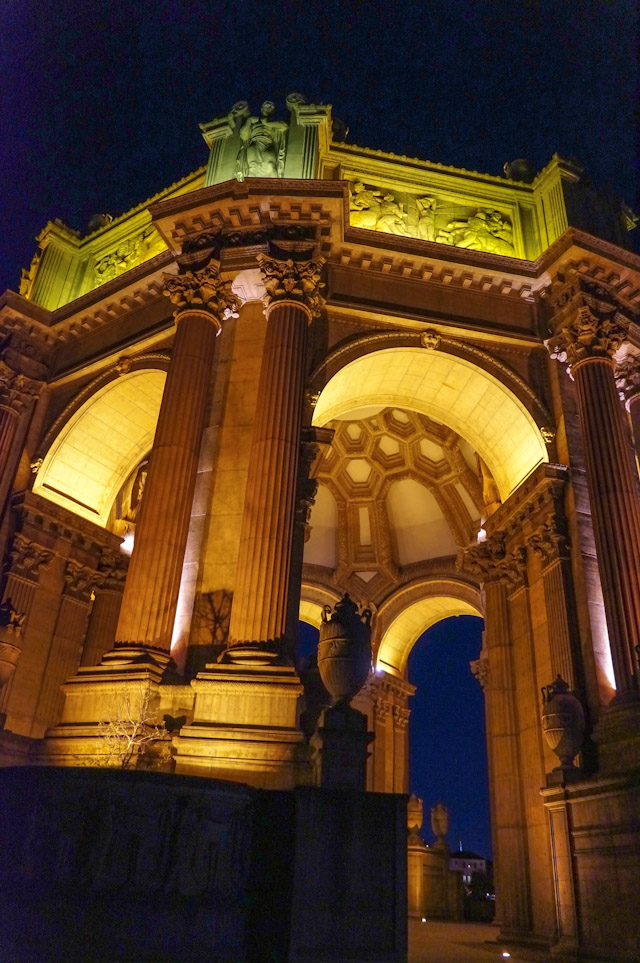Gastronomy has to be our single most important technology - There's no civilization or computers without it

I love any excuse to go to the Palace of Fine Arts and visit The Exploratorium – two of my favorite places in San Francisco.
On the first Thursday of every month The Exploratorium hosts its “After Dark” series of unique events. This month the theme was ‘Gastronomy’ looking at the science and the art of creating food. Several thousand people turned up for lectures, tastings, demonstrations, and to play around with The Exploratorium’s marvelous, hands-on science exhibits.
The theme reminded me of the incredible, and very much under-appreciated importance that the invention of gastronomy has had, both on our development as a species and in developing our civilization - no other technology has done the same.
The development of cooking food had a monster effect on our ancestors. Cooking unlocked vast amounts of hidden nutrition in raw foods.
The development of the cooking pot literally blew our minds - our brains jumped in size and our bellies shrank – which made us smarter and also better looking.
All that extra food energy went straight to growing and fueling our brains, which need 24/7 glucose, our highest octane food fuel and burn 25% of our calories.
The cooking pot allowed us to build a Ferrari of a brain, expensive to maintain but incredible in performance. We left the other primates in the dust and now we’re on the doorstep of our next big leap, into some sort of mixed biological digital world.
If gastronomy hadn’t been invented there would be no civilization, science, arts, building of big things, or development of semiconductor and computer technologies because we wouldn't have the time for it.
It turns out that it’s very difficult to digest a full day of energy from raw food. 2500 calories is a shockingly large volume of raw vegetables, salads, berries, fruits, etc.
An experiment at Bristol zoo in the UK, with human volunteers agreeing to eat a raw food diet for the summer, had to be shut down after a few weeks because the people were losing so much weight they were becoming malnourished and it could have led to serious health problems. They simply could not chomp, chew, and swallow enough raw food during the day to meet their nutritional needs.
The evidence is that we evolved alongside the cook pot and we become sickly without it, it’s a technology that’s absolutely vital to our well being.
Outsourcing our stomachs
The development of gastronomy essentially created an external stomach that helped us to extract the maximum nutrition from what low-energy food. Less time eating raw food left more time for hunting animals, whose rich and highly nutritious flesh and organs further accelerated our brain growth.
It’s humbling to think of the enormous effect on our lives and evolution that the simple cooking pot has had. It surely must rank as the single most important technology ever invented.
Today we are in the midst of our next big step - outsourcing some of the work of our brains to external machines. We'll see massive changes and at a faster pace than those from the patient cooking pot.
What will come from our increasing, and ultimately inevitable collision of our biology with our technology?
What new inventions and behaviors will this bio-digital future produce? What types of new cultures and societies will arise? (Stanislaw Lem, the Polish science fiction writer brilliantly explores these types of futures in “Cyberiad” and in many other books.)
What does the economy look like in a future world where manufacturing technologies are 10,000 times more productive at 1,000th of the cost? What happens if only 10 percent of the population working can produce the needs of all 100%? That’s where we’re headed, and beyond, thanks to the good old cooking pot.
—
Finding my way around the Gastronomy event was made a lot easier thanks to my guide, Quynth Tran, a former newspaper reporter now working on the public communications team at The Exploratorium.
She says that the After Dark Series has been very successful and the concept has been followed by other museums. The California Academy of Sciences set up a competing Thursday night event called ”Nightlife.” (My favorite evening museum event is the superb “Friday Nights” series at the de Young Museum in Golden Gate Park.)
The place was filled with a lively, curious, and great looking crowd. Ms Tran says that the After Dark evenings will become weekly when The Exploratorium moves to a new location in the Embarcadero.
I had a great time and it was welcomingly Geek-free – my “Highlight” app barely blipped all night.
If you want to leave the echo chamber for some very enjoyable hours, this is a great place to come on the first Thursday of the month in San Francisco.
Next month the theme is ”The World of Your Senses.”
The US premiere of a special exhibition of Tibetan thangka style paintings and engage with Tibetan monks from India to explore sensory perception through Buddhist and scientific perspectives.
Here are some photos from the Gastronomy evening:
(Photos by Tom Foremski.)
